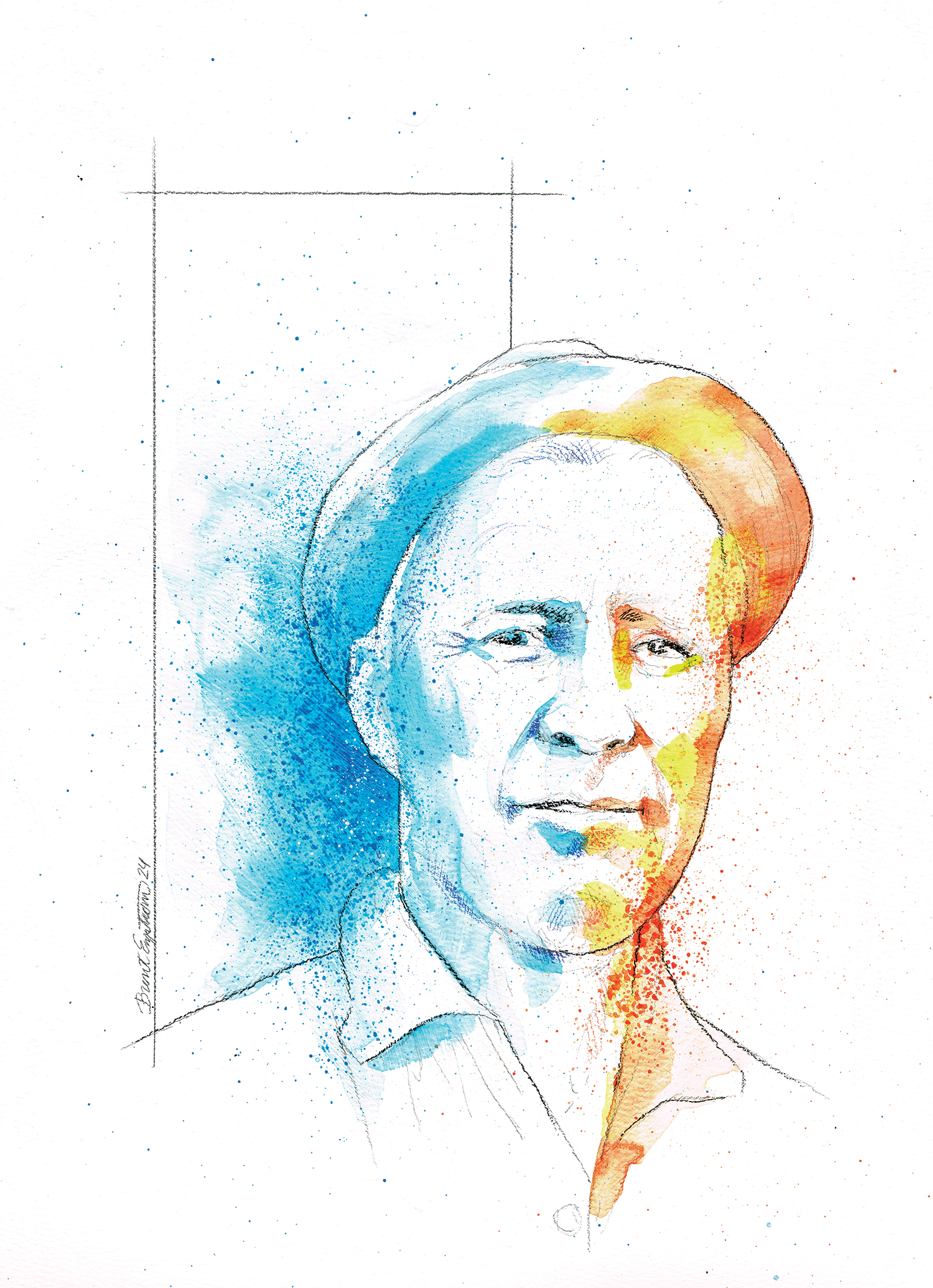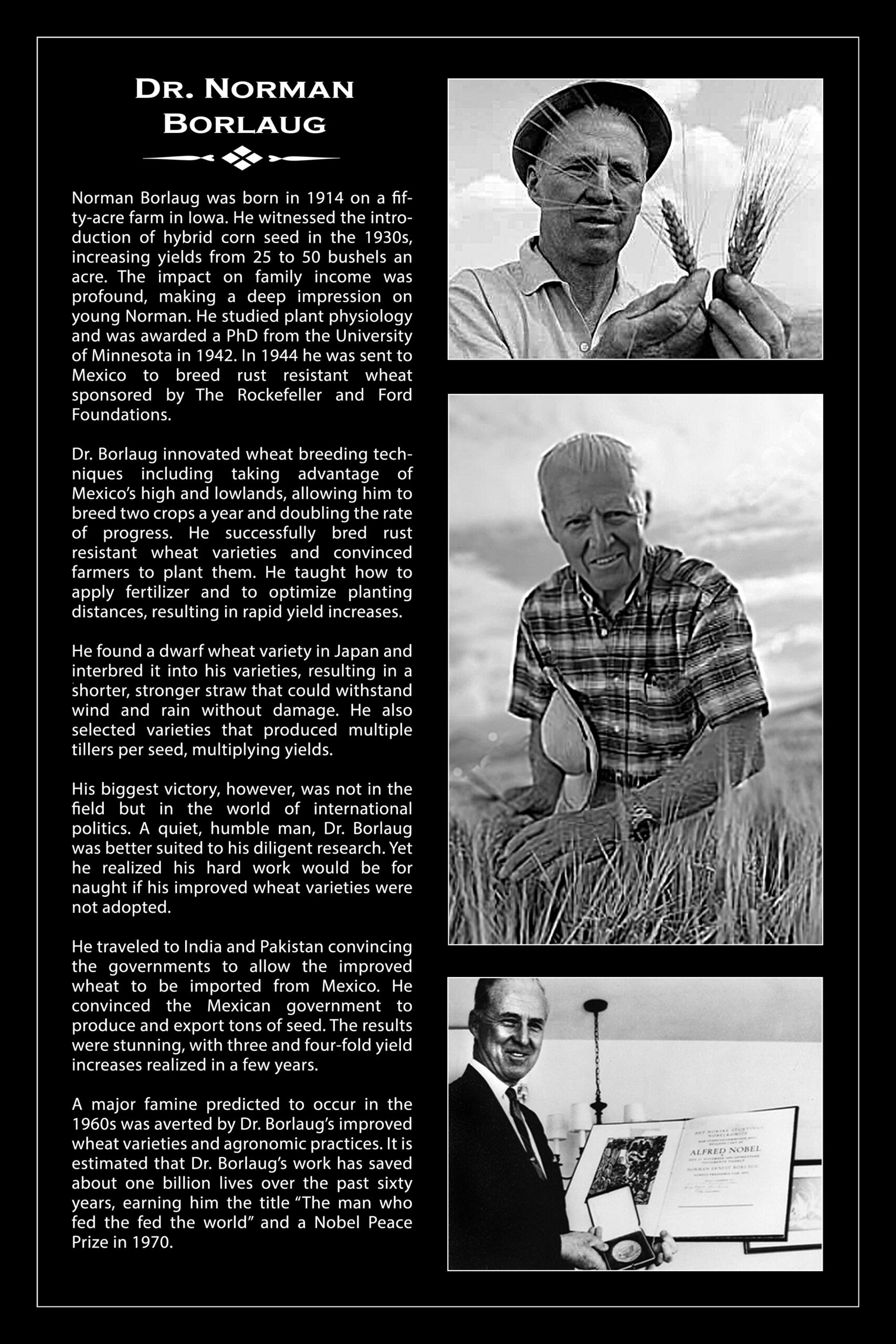Norman Borlaug was born in 1914 on a fifty-acre farm in Iowa. He witnessed the introduction of hybrid corn seed in the 1930s, increasing yields from 25 to 50 bushels an acre. The impact on family income was profound, making a deep impression on young Norman. He studied plant physiology and was awarded a PhD from the University of Minnesota in 1942. In 1944 he was sent to Mexico to breed rust resistant wheat sponsored by The Rockefeller and Ford Foundations.
Dr. Borlaug innovated wheat breeding techniques including taking advantage of Mexico’s high and lowlands, allowing him to breed two crops a year and doubling the rate of progress. He successfully bred rust resistant wheat varieties and convinced farmers to plant them. He taught how to apply fertilizer and to optimize planting distances, resulting in rapid yield increases.
He found a dwarf wheat variety in Japan and interbred it into his varieties, resulting in a shorter, stronger straw that could withstand wind and rain without damage. He also selected varieties that produced multiple tillers per seed, multiplying yields.
His biggest victory, however, was not in the field but in the world of international politics. A quiet, humble man, Dr. Borlaug was better suited to his diligent research. Yet he realized his hard work would be for naught if his improved wheat varieties were not adopted.
He traveled to India and Pakistan convincing the governments to allow the improved wheat to be imported from Mexico. He convinced the Mexican government to produce and export tons of seed. The results were stunning, with three and four-fold yield increases realized in a few years.
A major famine predicted to occur in the 1960s was averted by Dr. Borlaug’s improved wheat varieties and agronomic practices. It is estimated that Dr. Borlaug’s work has saved about one billion lives over the past sixty years, earning him the title “The man who fed the world” and a Nobel Peace Prize in 1970.
We are deeply grateful as an industry to Dr. Borlaug and the breeders who carry on his work today. We are proud to admit him to our Hall of Fame as an example of how one man can change the world.


